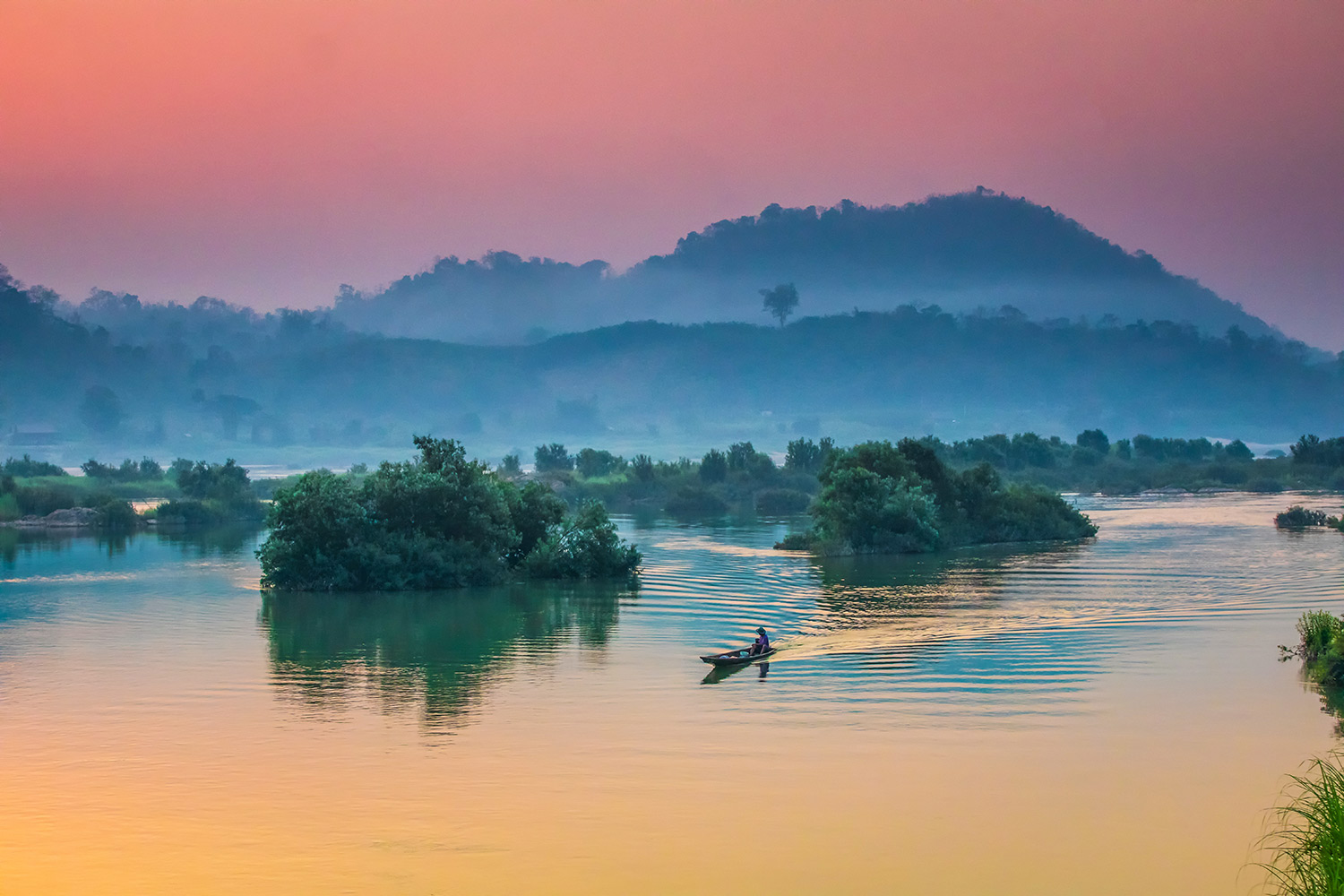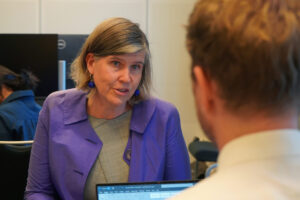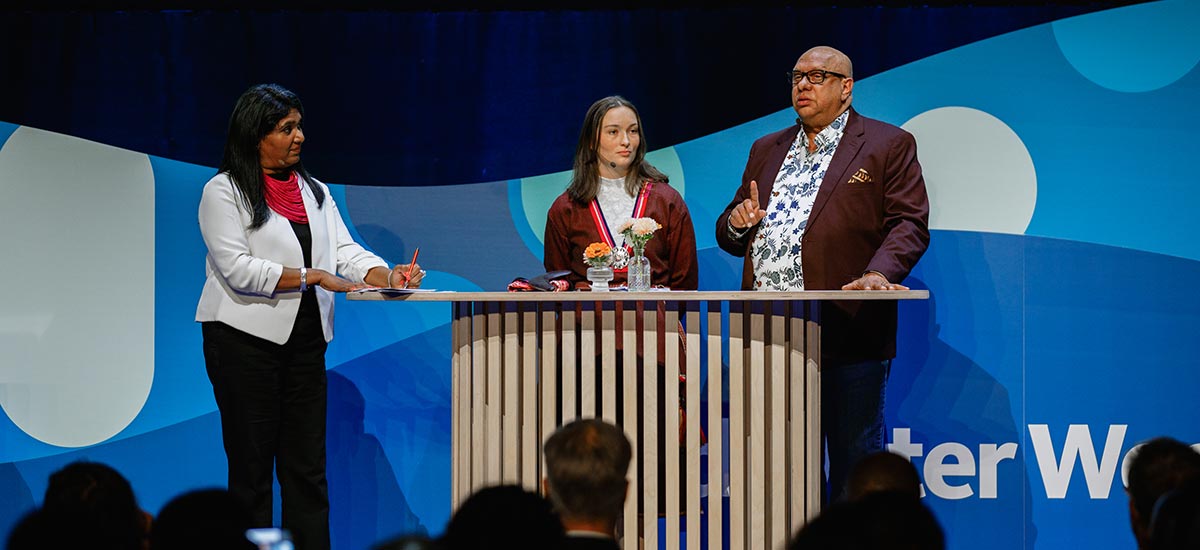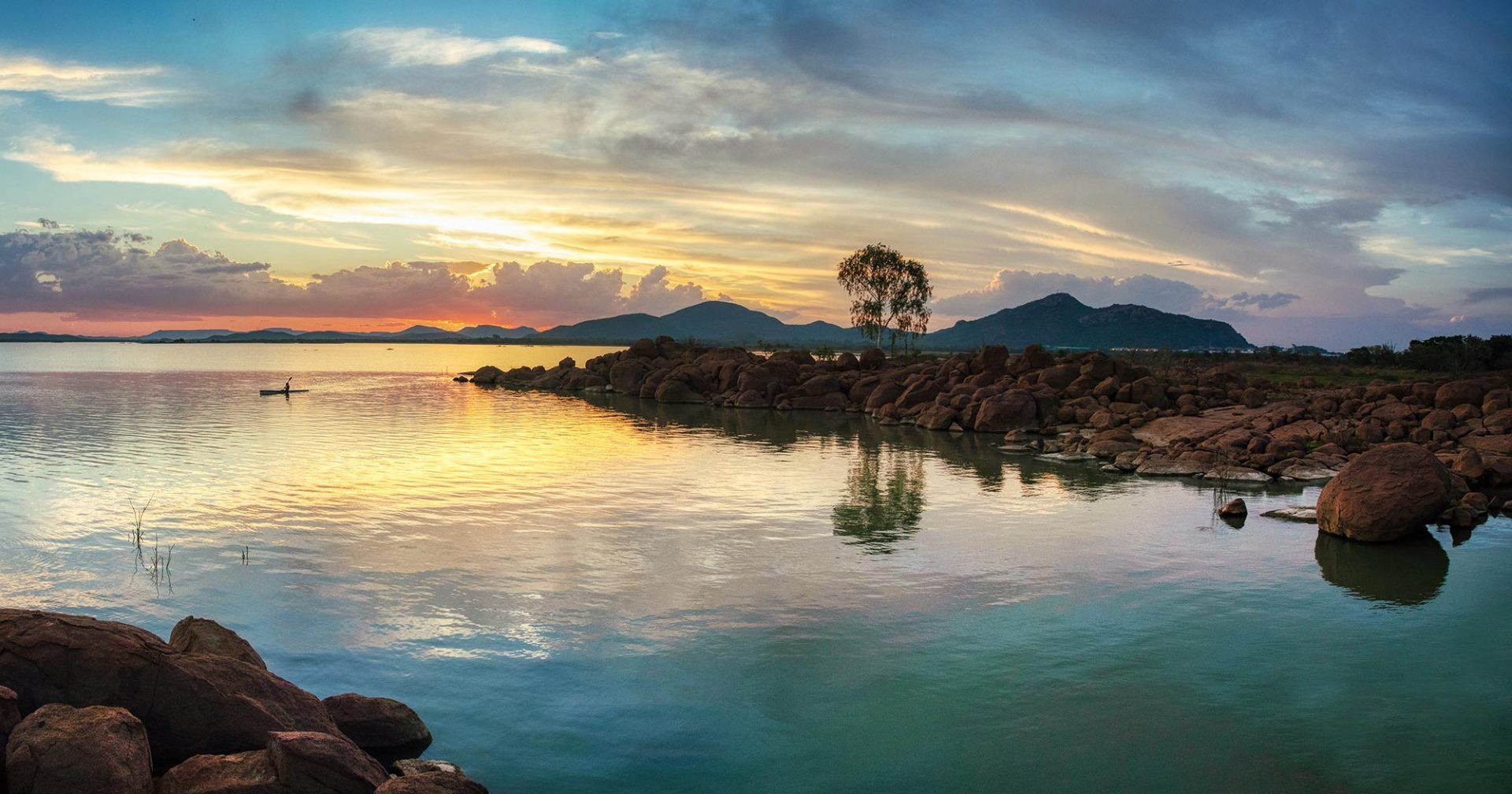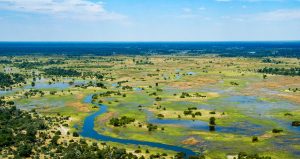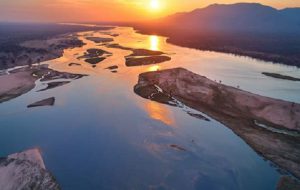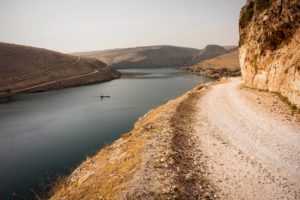heading
SIWI is a leading expert on water diplomacy and environmental peacebuilding. We generate knowledge, strengthen capacity, convene meetings to share experiences, and facilitate dialogues where water is a catalyst for conflict resolution and peace.
Today’s threats to human security will be tomorrow’s global security risks. In an era of rapidly growing environmental and climatic hazards, we need a new approach to security that integrates climate action, conflict prevention, dialogue facilitation, and peacebuilding.
Climate change is increasingly seen as a threat multiplier, especially since the regions already affected by fragility and conflict often face the gravest climate-related challenges, including growing water insecurity. In the absence of effective governance, this can potentially lead to escalating conflict situations.
The rapidly growing fields of climate-smart security, environmental peacebuilding, and water diplomacy are inextricably interlinked and show how good management of natural resources, especially water, can strengthen local communities and reduce conflict risks.
SIWI works to raise awareness of the benefits of cooperation over shared water resources, the role of improved water management in fragile contexts and how water diplomacy can be a powerful tool for conflict prevention and peacebuilding.

Our approach
As a multi-faceted water institute, SIWI can draw on many areas of expertise, which is increasingly needed in today’s complex world. Climate change, environmental degradation, and population growth interact with a range of social and political factors with implications for human, national, and regional security. The traditional siloed approach – with little contact between peace, security, climate, and development experts – is no longer sufficient to effectively address these new challenges.
SIWI seeks to raise awareness of the complex interlinkages between threats to both the natural world and human security. The approach is underpinned by research and knowledge generation on the relationship between water and peace, especially in fragile contexts, where SIWI convenes actors from the environment, climate, peace, security and development communities for knowledge exchange and collaboration. SIWI’s High-Level Panel on Water Diplomacy, which takes place during World Water Week in August, contributes to the discussion on linkages between water, climate change and foreign policy.
With our broad expertise in water issues, SIWI is often early in identifying emerging trends, such as how water scarcity generates new forms of exploitation. If people lose their livelihoods because there is no longer enough water to fish, farm or herd cattle, local communities can fall prey to criminal gangs, terrorist groups or local militias. As evidenced during the Covid-19 pandemic, these types of groups can gain ground during times of crisis, especially in fragile and conflict-affected states. If a government is not able to fulfil basic services, such as providing water, violent non-state actors will be quick to step in.
To address such a situation, it is essential to apply a gender-transformative approach. Women and girls are often responsible for providing water for the household, which means that they are especially vulnerable to this type of threat. At the same time, they are also important agents of change and often first responders on the ground.
By analyzing the broader security risks, SIWI can help actors prevent situations that can lead to violence, for example by strengthening water governance and by bringing together different groups to exchange experiences. SIWI also supports processes for successful cooperation around shared waters and facilitates knowledge exchange and dialogues.
The challenge
The growing natural and demographic pressures on water resources demand a strong cross-sector collaboration.
Climate change is increasingly seen as a threat multiplier with wide-reaching impacts on global security. Not least can rising temperatures alter the water cycle in dangerous ways causing droughts and floods, which make access to water much more unpredictable. There is also increasing pressure on water resources from rapidly growing populations, rising demand, expanding industries, and unsustainable land use. All these factors can trigger water scarcity, hunger, and conflict. At the same time, crises can also create opportunities for change, cooperation, and the inclusion of broader stakeholder groups.
The growing pressure on water resources is a challenge that should be at the crux of the climate and security debate. However, the traditional approach to security often fails to assess and address threats linked to natural resources and human development. There is a strong need for experts from different fields to work together to find solutions for climate-smart security. Transboundary water cooperation and water diplomacy offer two promising avenues for peace and conflict resolution.
New vulnerabilities
The first step towards informed decisions on climate-smart security, conflict prevention, and environmental peacebuilding is to understand the emergence of new threats and threat multipliers. Environmental degradation and climate risks often disproportionally affect poor and marginalized groups, exacerbating their vulnerability. Such situations are increasingly exploited by criminal gangs, terror groups and local militias to advance their positions. Though violent non-state actors do not emerge as a direct result of climate change, the impacts of climate change and environmental degradation can make it easier for them to gain ground.
In the paper, Tracing Intersections of COVID-19: Gender, Water and Armed Conflict, SIWI experts explored the security impacts of the global pandemic in fragile and conflict-affected states. In many of these countries, the population suffers from a lack of basic services such as healthcare, water, sanitation, and hygiene (WASH). This was often already the case before Covid-19 – typically linked to ineffective institutions, low levels of trust and ongoing conflicts – but the pandemic has aggravated the situation. For armed non-state actors, this has opened new opportunities which they have been quick to take advantage of. By offering water and other services that people desperately need, they aim to win the hearts and minds of local populations. And if armed non-state actors manage to take full control of water resources, local communities are very vulnerable to exploitation. It is therefore extremely important to strengthen access to basic services and improve water governance in fragile contexts.
Natural resources
Research also indicates that sustainable management of natural resources can reduce the risk of armed conflict, which is yet another reason why we need to heed the growing threats to food security and the livelihoods of local communities. SIWI has several ongoing projects that aim to improve the livelihoods of people while also protecting ecosystems, for example through more sustainable farming, forestry, and landscape management.
Transboundary water cooperation
Since more than half the global population lives in transboundary river basins, cooperation over shared water resources is another key component to strengthen economies, as well as ecosystems.
SIWI works with states sharing the same water resource to raise awareness of the benefits of cooperation over shared waters and to develop the necessary frameworks, institutions, and processes for information exchange. SIWI also helps foster community resilience against waves of “fake news” about transboundary water cooperation.
Water diplomacy
Since water is often transboundary in nature, it offers natural entry points for dialogue. SIWI facilitates dialogues over shared waters, involving both state and non-state actors. We also offer experience-sharing platforms and capacity-strengthening activities to meet the steadily rising demand for knowledge about water diplomacy, especially the linkages between political and technical tracks.
Key concepts
Transboundary water cooperation
Cooperation takes place across political, sectoral, and societal boundaries, between or within countries:
- International boundaries: International cooperation is needed where river basins, lakes or aquifers are shared between two or more nation-states.
- Subnational boundaries: Cooperation must also occur within countries, despite boundaries between different local government units and other administrative units (provinces, governorates, municipalities). This is often where we see the greatest risks of tension and armed conflicts.
- Sectoral boundaries: Sectoral boundaries can also be relevant, especially if water scarcity leads to intensified competition over limited water resources. Conflicts may arise if there is not enough water to meet the needs of agriculture, industry, energy production and ecosystems. The use within one sector may also have enormous unintended consequences for another, such as when wastewater from cities or fertilizers from agriculture impact ocean health.
Across these different kinds of borders, stakeholders can engage in technical, scientific, and political cooperation. The level of partnership can range from uncoordinated dialogues across boundaries to formalized framework agreements and the development of joint institutions for knowledge sharing and management of the shared water resource. SIWI contributes to supporting different processes aimed at building and/or advancing water collaboration.
Water diplomacy
Water diplomacy is a process leading towards the establishment or enhancement of technical and political cooperation over shared water among a wide range of actors at multiple levels; formal and informal, intra- and inter-state. It is a discipline that can be exercised on different hierarchical levels in a society. The aim of water diplomacy is to catalyze regional cooperation, whilst contributing to stability and peace. As such, it may therefore go beyond traditional transboundary water management.
Water diplomacy can be an important part of conflict prevention, particularly in regions affected by increasing water scarcity. In cases when water is not a primary source of dispute but may be part of underlying historical grievances, a dialogue among experts can serve as a vehicle for cooperation beyond water issues. Water diplomacy can thus be used as a confidence-building measure between countries or states sharing a water resource.
Read more about water diplomacy:
